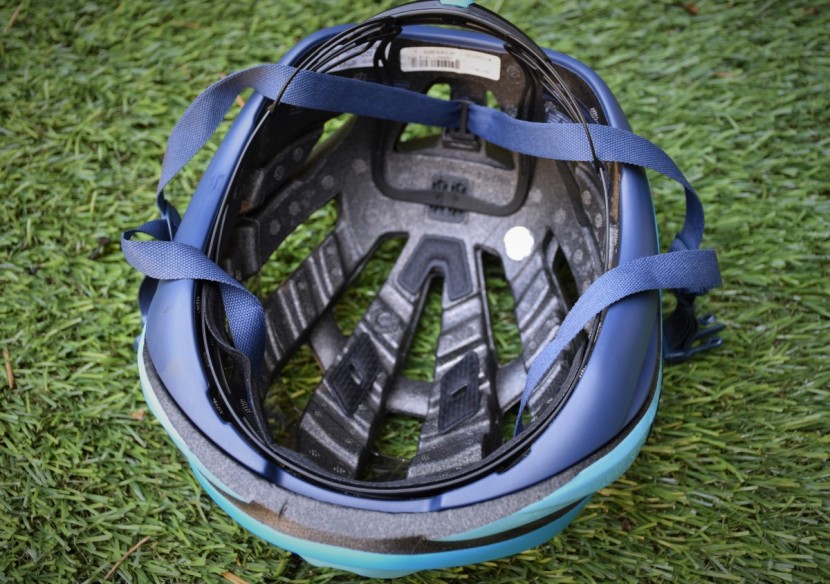Today's road bike helmets are lighter, more easily adjustable, better ventilated, and more protective than ever before. Different models come in all different sizes, shapes, and weights, have different adjustment systems, different ventilation abilities, and various construction types. These differences can have a significant impact on the fit, comfort, and performance of each model, and having a comfortable, well-fitting helmet is critical. This is where we come in. We spent several months researching, discussing, and testing each helmet in our lineup to identify its strengths and weaknesses so that you can be prepared to make the best choice for your particular needs. Below, we break down our testing process and describe each rating metric that we considered.
Related: How to Choose the Perfect Road Bike Helmet
Comfort
We recognize that comfort is a very subjective metric, and is impacted by individual preferences and head shape, and size, but we were able to find certain features that had our testers consistently favoring the same products. Our testers tried on the helmets at home to analyze the padding design, headband adjustment systems, chinstrap design, and how the helmets sit on the head. After our initial impressions, we hit the road and hit it hard. We took these helmets out in chilly early spring conditions, in pouring rain, and in the sweltering summer heat. We rode everything from short commutes and casual group rides to high-intensity climbs and descents. The models that score highest in this metric will provide consistent comfort for a variety of users in a variety of conditions.
Adjustability
Helmets with the best adjustability are more likely to fit a wider range of users and are more likely to help those users dial in an optimum comfortable fit. Our testers tinkered with the headband adjustment dials, headband fore/aft adjustment systems, and adjustable chinstraps to see which helmets allow for the most flexibility. Our testers, like most people, come in different shapes, sizes, hairstyles, and beard lengths, allowing us to put these features to the test in the real world. For many, like us, cycling is a year-round sport, so we also tested how well these products accommodate a beanie cap for cold weather riding and how easy they are to use with gloves on.
Weight
While many different design features have an impact on a product's performance, weight is perhaps the most objective and easily measured metric. Here at GearLab, we measure every product ourselves to see how they stack up. In many cases, our measured weight can vary widely from the manufacturer's claimed weight. For this review, we weighed each model multiple times to get a consistent, accurate measurement. We found that each product's measured weight was within 5% or less of the manufacturer claimed weight.
Style
Style is perhaps the most subjective metric, as individual tastes and preferences can be as different as the helmets themselves. We even discovered that some of our testers have different styles as well. For this rating metric, we looked for unique design features that make a product stand out, such as rubber sunglasses holders, unique colors, or original design features. We also considered lower profile and well-fitting helmets, because no one likes feeling like a mushroom head.
Ventilation
For our ventilation rating metric, we not only considered the size and a total number of vent openings on a helmet, but their placement, orientation, and perceived effectiveness. We rode with these helmets through all different seasons, including the cold spring snowstorms and blistering early summer heat. Some of our toughest test rides this year were up the long, steep, grueling climbs of Tioga Pass, Ebbett's Pass, Rock Creek, and Pine Creek in the eastern Sierra. We tested nearly every highway and backroad we could find, turning gears up and over thousands of vertical feet to compare the effectiveness of each model. When the sun's beating down, and you're grinding along at a slow speed, effective ventilation is critical. We even took them indoors, setting up temperature testing under controlled conditions to see which kept our heads the coolest as we spun away on our trainers.
Durability
While helmets typically should be replaced after the impact of a crash regardless of the perceived damage, there are other considerations for a helmet's durability. Throughout our testing, we naturally ended up treating the products in the lineup the same way most users would: we threw them in the trunk, accidentally dropped them on the ground, squished them in a backpack, or bounced them together while carrying them. While it's too early to identify any major long-term impacts, we were able to find some trends in the materials and design features that seem to be more durable.







